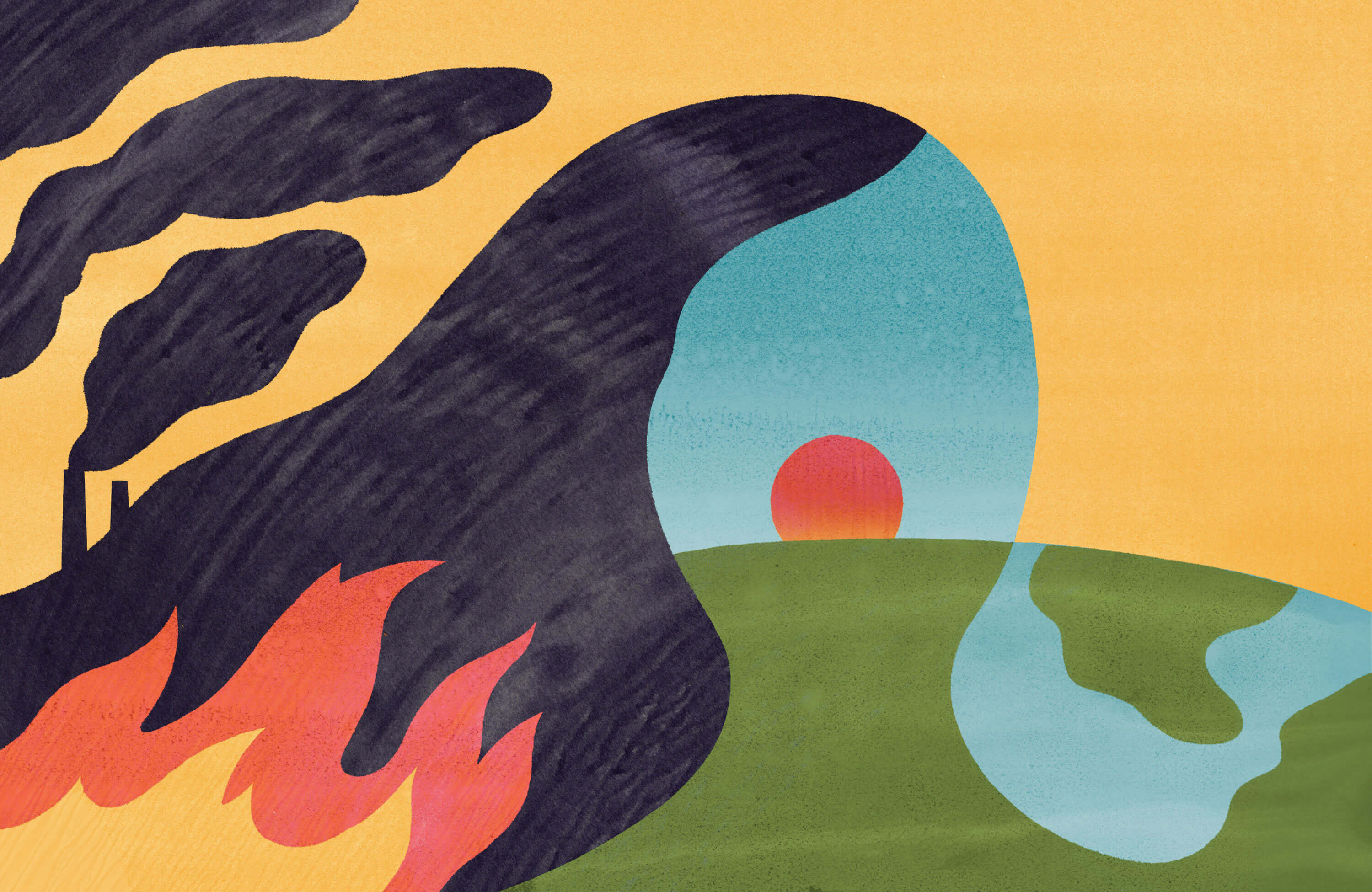
Our Warming Planet
Monmouth faculty weigh in on the defining issue of our time: climate change.
Last September, millions of people took part in global demonstrations to demand that action be taken to address climate change. In November, more than 11,000 scientists from around the world issued a joint public statement in the journal BioScience warning of the “untold suffering” humanity will face if inaction regarding climate change continues. Shortly thereafter, Italy became the first country in the world to announce that it will require climate change studies be taught in classrooms as part of a student’s compulsory education.
These are but a few of the recent mile markers dotting our journey through the Anthropocene, the proposed name for our current epoch, suggested in part to indicate the impact human activity is having on our climate and environment. And while opinions vary on what should be considered the actual starting point of the Anthropocene, the vast majority of scientists do agree that, in recent decades, the impact humans are having on the climate and environment is irrefutably harmful—and could soon be irreversible.
Within this context, Monmouth University’s faculty organized a Climate Crisis Teach-in last fall. The daylong symposium featured experts from across the disciplines examining what the United Nations has called “the defining issue of our time.”
In sometimes stark terms, they explained how climate change is already impacting everything from international law and cultural beliefs to our own physical, mental, and emotional well-being. They also shared insights on what the average person can do to help prevent further damage.
Here, with permission, we highlight a few of their talks.
Part I: Our Love Affair With Capitalism Is Killing The Planet
Part II: The Art of Sowing Doubt